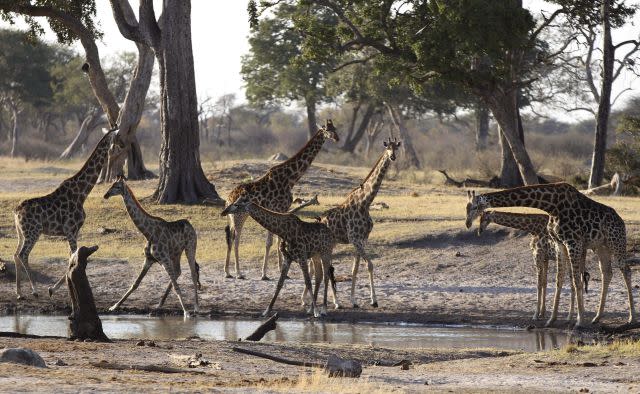Cash-strapped Zimbabwe sells off its wildlife to cope with drought

Zimbabwe’s national parks put its wildlife up for sale on Tuesday in a bid to save the animals from a devastating drought, Reuters reported.
Zimbabwe’s Parks and Wildlife Management Authority said potential buyers “with the capacity to acquire and manage wildlife” and the requisite land to house the animals should get in touch.
“In light of the drought…Parks and Wildlife Management Authority intends to destock its parks estates through selling some of the wildlife,” the authority said in a statement.
The statement did not say what species of animals are up for sale, or whether they would be sold to local or foreign bidders.
“We do not have a target. The number of animals depends on the bids we receive,” parks authority spokeswoman Caroline Washaya-Moyo said, according to Reuters. Zimbabwe’s national parks, although already cash-strapped, are known for their herds of elephant, wildebeests, wild buck and big cat predators.
The drought has exacerbated a dire economic situation in the country; Zimbabwe is yet to recover from a failed currency thanks to hyperinflation, international sanctions and corruption allegations. Caused by the effects of the El Nino phenomenon, the lack of water has scorched Zimbabwe’s food and commercial crops leaving 4 million people in need of food aid.
In other parts of southern Africa, conservation parks are providing feed to wild animals that can’t find food due to the drought. Some are also digging or reopening wells for underground water, which can prove to be costly.
The parks authority has sold animals previously to cope with financial pressures. Last year, Zimbabwe exported 20 elephants to China. Those beasts were taken from conservation parks and destined for zoos. International and local animal rights groups’ protests were ignored. Last year, the beloved Cecil the lion was killed by an American dentist in Zimbabwe, causing international outcry.
Sign up for the Quartz Africa Weekly Brief — the most important and interesting news from across the continent, in your inbox.

Sign up for the Quartz Daily Brief, our free daily newsletter with the world’s most important and interesting news.
More stories from Quartz:

 Yahoo Finance
Yahoo Finance 